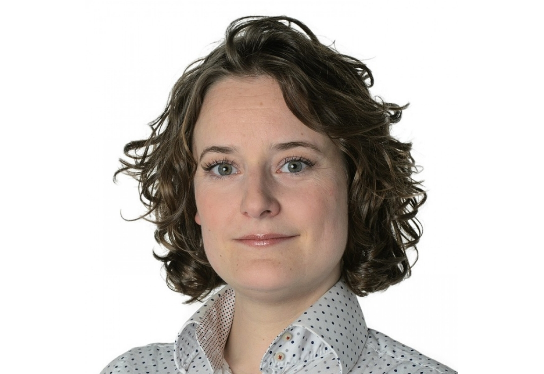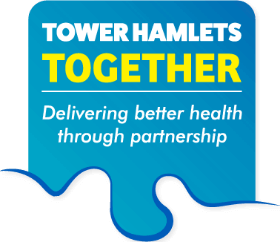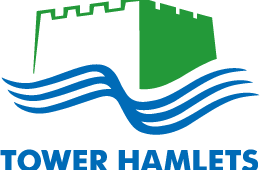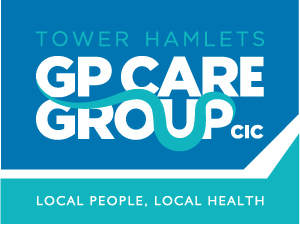Amy's Monthly Briefing - December 2019
The borough’s vision of a seamless health and care experience for its citizens.

It was brilliant to hear directly from the four Locality Health and Wellbeing Committees (LHWCs) for the first time.
This month I did my first report to the Health and Wellbeing Board as Independent Chair, updating on progress made by the THT Board and throughout the partnership since I took up the role in April 2019. We had positive feedback from HWB members and a constructive discussion about the challenges the system faces from rising demand, limited resources and complex needs in the borough.
At our own THT Board, we made a significant decision to merge the Joint Commissioning Executive (comprising local authority and CCG leadership), with the THT Board starting from January 2020. This is a big step forward in terms of strengthening the Board's system oversight across finances, performance and outcomes. It also streamlines the system overall, given much JCE business duplicated THT. While this might seem like a technical governance change, its genuinely exciting and potentially transformative! It will strengthen the commissioner/provider relationship, moving us beyond competition towards collaboration; bring more rigour and clout to system-wide live issues - such as pressures at the Royal London to shortfalls in funding for violence against women and girls; and give THT more "teeth" to be brave with our collective resources, so we can truly join-up frontline services for local people.
We heard an update from WEL colleagues on CCG changes at the cross-borough and North East London level. Assurances were given that there is no intention to create a big "mothership" at NEL level or to reduce clinical leadership, with the goal to retain 80% of activity at the borough level. NEL proposals on the new Integrated Care System are due to NHS England by September 2020.
Our user voice slot this week was provided by our meeting hosts - The Space, performing arts centre on the Isle of Dogs. The Space harnesses the healing power of the arts, working for example with 25 adults with learning disabilities to produce and perform in their current show. We heard from one of the team who also uses health services locally about her challenges accessing support for a late diagnosis of PTSD. Key themes included oversubscribed GP practices, seeing a series of locum GPs with no time to read case notes, missed checks and tests due to failure of professionals and services to talk to each other. She ultimately uses a mix of private and NHS care, due to a lack of trauma specialists in the NHS. The Board made a commitment to explore the growing evidence and movement for trauma-informed care across all our services, given for example 60% of women's mental health problems have their roots in trauma. We also talked about the need to return to continuity and relationship-based care within GP practices, rather than just rapid access.
We heard an update on the development of the new Health and Wellbeing Strategy, which is being co-produced through a range of methodologies with residents and professionals. The Board were really impressed by the visible step change in participation and suggested ways to engage more effectively with residents who may need to engage digitally (e.g. due to busy careers) and to report back to residents on progress from the last strategy through simple You Said, We Did communications.
Spotlights this month were on the Promoting Independence workstream, Workforce and OD enabler groups and the four Locality Health and Wellbeing Committees. Promoting Independence are progressing well with their personalisation priority but flagged the need for stronger system leadership to push forward care co-ordination, one of the core building blocks of frontline integration. Workforce have refocused their plan, to include developing one contract across the system so staff can move between partner organisations without losing benefits, continuity of service and so on. An immediate focus is to revamp corporate inductions across all partners so THT is a core part of "everyday business" for all new staff.
It was brilliant to hear directly from the four Locality Health and Wellbeing Committees (LHWCs) for the first time. While all have evolved in different ways, there are some common themes across both priorities and challenges. North East are focusing on child poverty, in particular uptake of healthy start vouchers and the free early learning offer. North West are looking at mental and physical health, with a focus on building key multidisciplinary teams around people with long term conditions. South West have set a priority for each workstream: flu vaccines for children, including work with schools, weight management, and loneliness. South East similarly have three priorities: tackling obesity in year 6 by starting in reception; mental health access and pathways; learning disabilities particularly support for carers.
The Board heard loud and clear about the common challenges faced by the locality committees:
-making THT the 'day job' with consistent attendance from all partners (patchy in different areas e.g. in some schools were absent but in others they were core members) capacity, time and energy for 'doing', tackling knotty operational issues and driving forward local priorities
- Importance of public health in providing the "glue" and the broader prevention focus
- very live issues of staff recruitment and retention across the system
- unclear and ineffective pathway for escalation to THT Board and subsequent feedback loop
communications up, down, across and outside of the LHWCs
- need for far stronger joint locality leadership, decision-making and accountability
We're planning a Board deep dive in the Spring to delve into these issues further, with workstream, enabler and locality leads, so we can grapple with and overcome the blockers to genuine frontline integration. This is vital so THT is ready to take on the borough responsibilities envisaged in the new Integrated Care System.
Finally we had an update on system intelligence and performance. We're working to embed the former JCE indicators into the emerging workstream dashboards, which will feed into a higher level Board performance dashboard. I stressed the need to create more space in 2020 for scrutiny and action, so we make the necessary shift to shared accountability and address urgent system wide issues showing in the data, such as pressures at Barts, in community mental health services and delayed transfers of care. Stepping up our approach to performance is a major priority for early in the New Year.
I am due to have a baby in early January, so I will be taking a couple of Board meetings off, but look forward to returning soon!
Wishing everyone a lovely festive season and all the best for the New Year.








